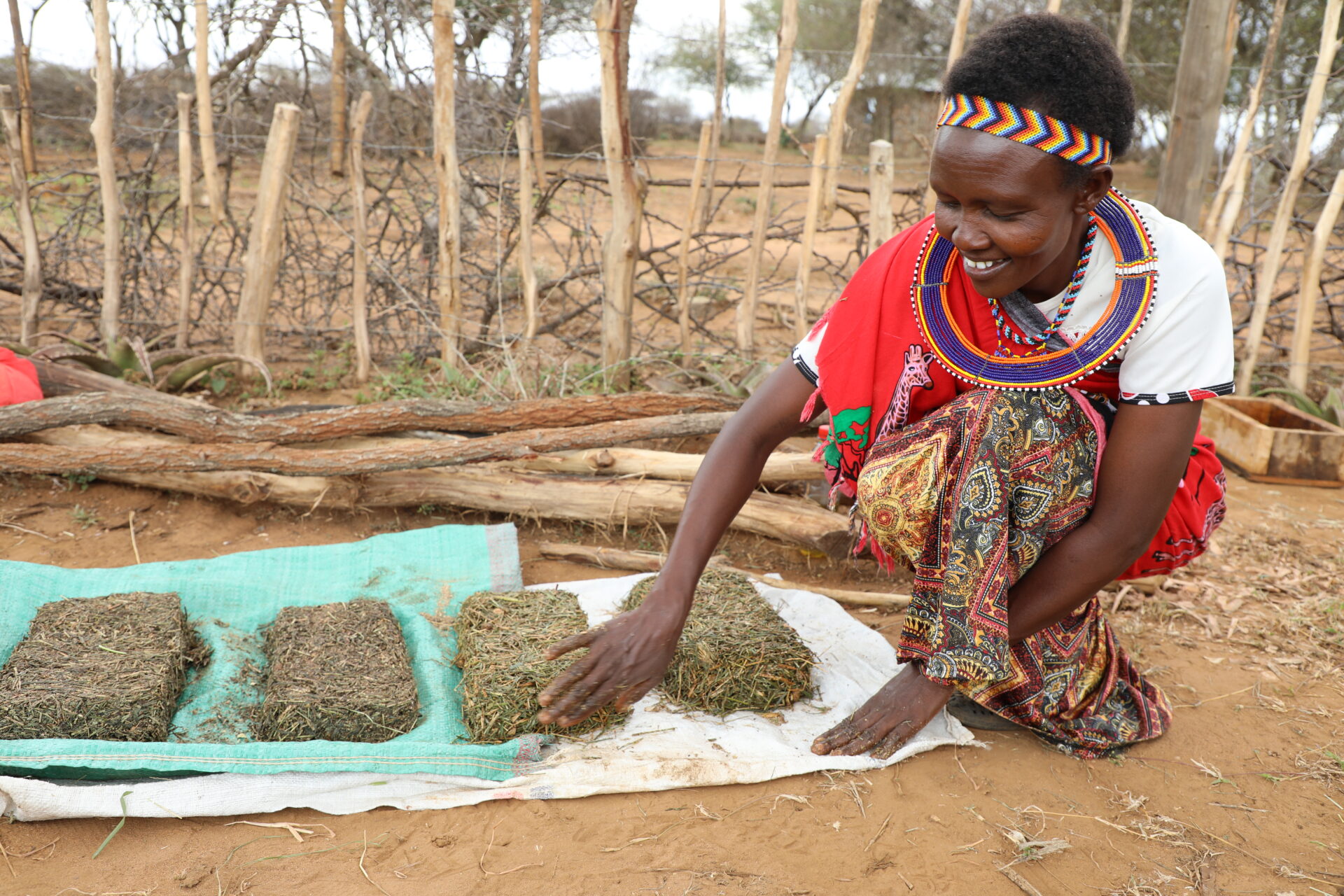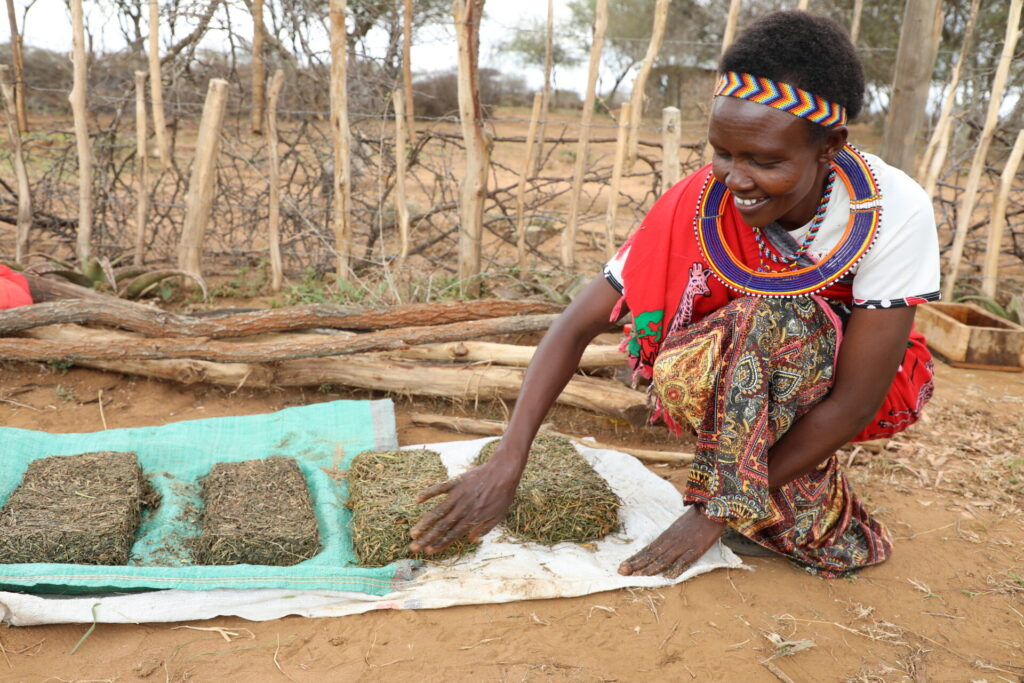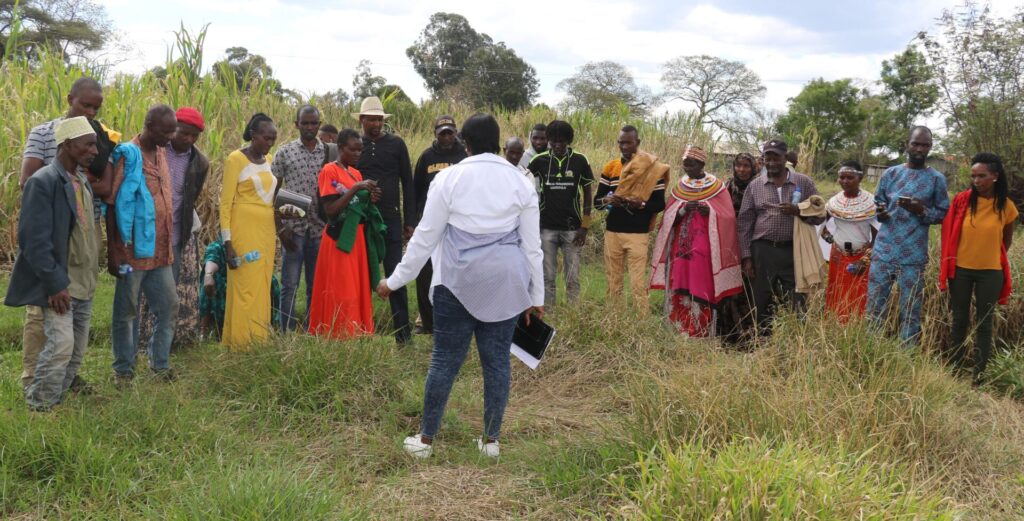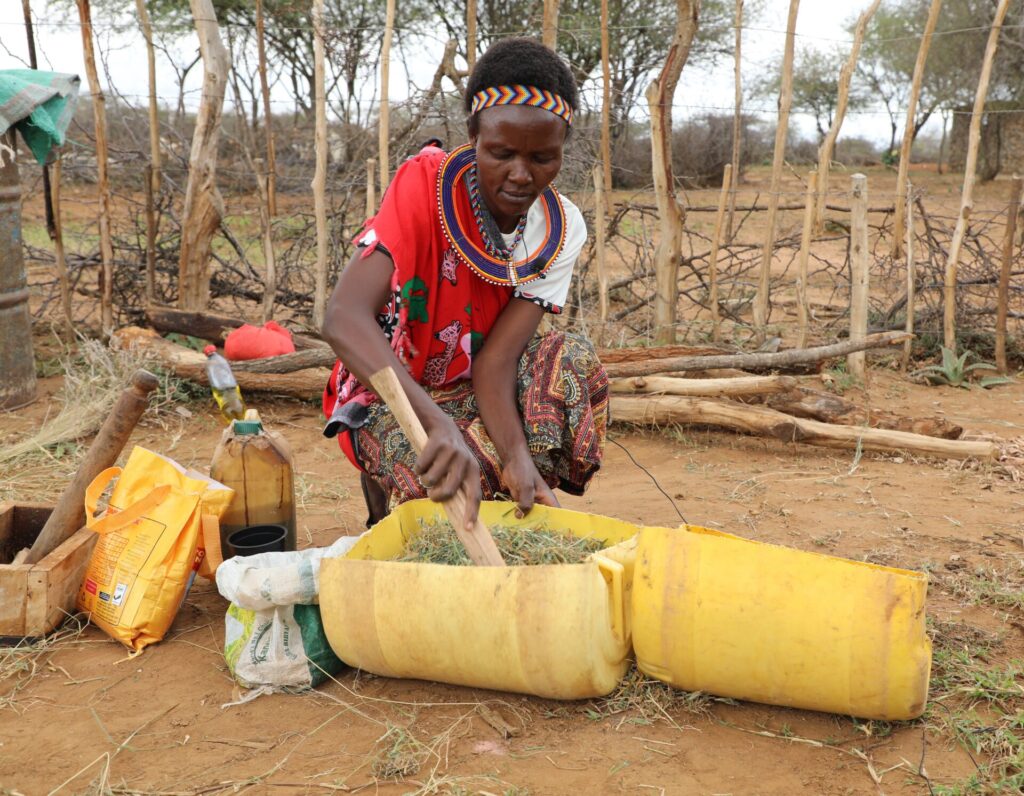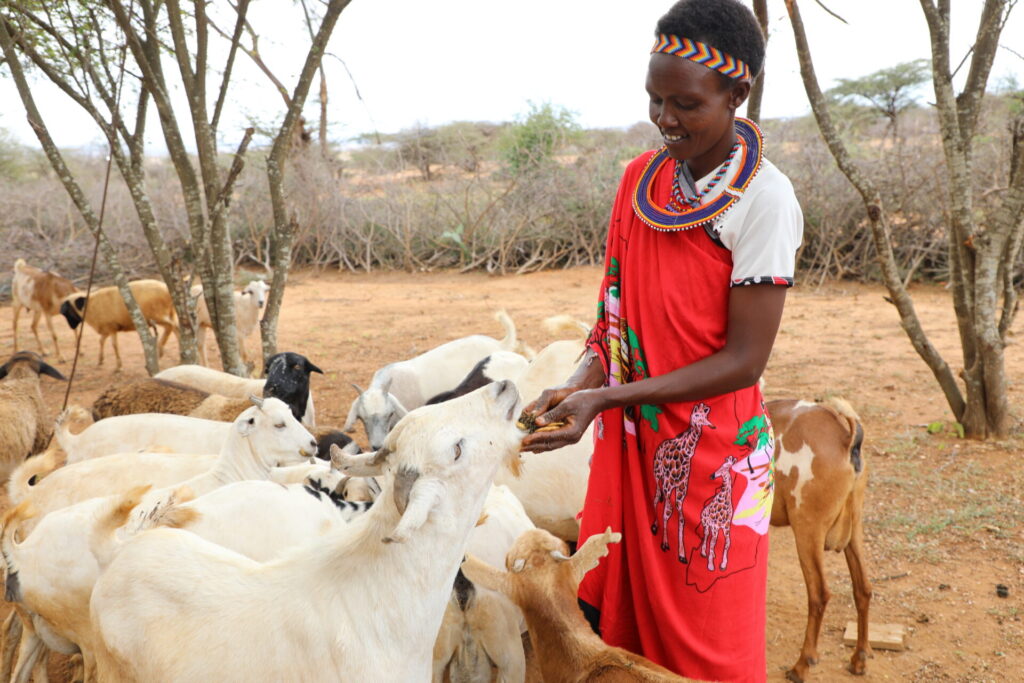Biashara Mashinani develops the capacity of men and women at the grassroots to start and manage enterprises to diversify household income and increase economic resilience.
Through the Rangelands SACCO, a community-owned and membership-driven financial organization, financial inclusion is promoted by giving members access to various tailor-made financial services, including savings accounts, affordable loans, business coaching, and investment opportunities.
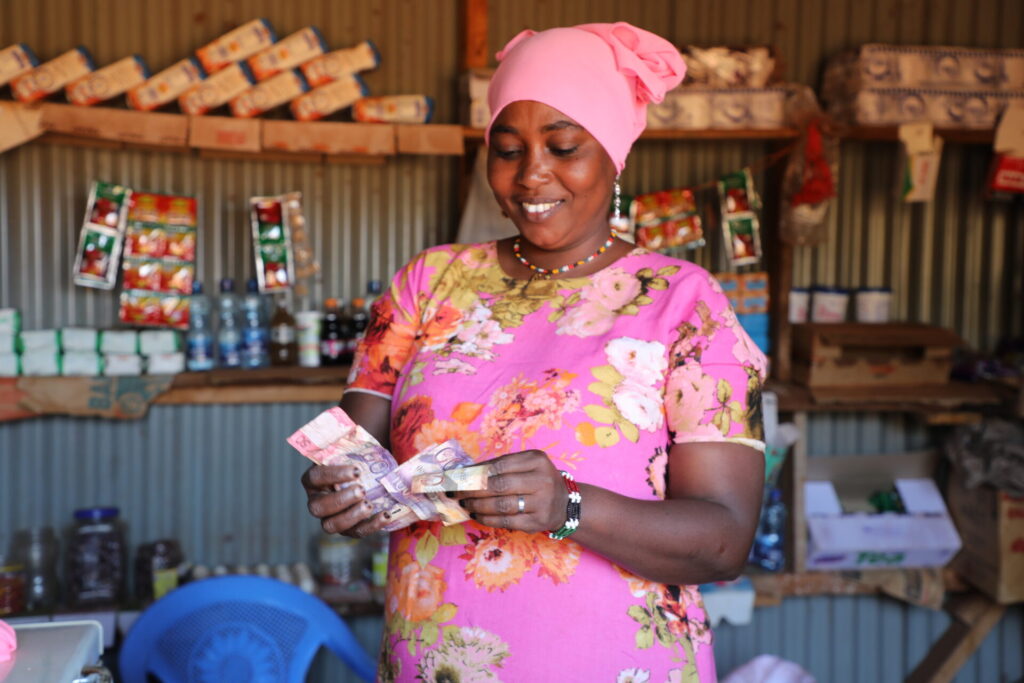
Over the last six years, the Rangelands SACCO has disbursed over 200 million shillings in loans to its members. Among the 3,594 women beneficiaries is Tunu Farhiya Choya, a resident of Karare, Songa Conservancy in Marsabit County, whose life has been significantly changed.
As an employed Early Childhood Development Education (ECDE) teacher at Karare Primary School, schoolwork typically ends early, and she hardly found constructive tasks to keep her busy for the rest of the day. In 2020, the world was hit by the COVID-19 pandemic, and due to school closures, Tunu was confined to her home idle, besides house duties.
Adding to her woes was a series of salary delays that left her in a tight financial spot. As a widow with two children, this was incredibly challenging. As the months passed and her bills piled up, she realized that depending solely on her job was no longer sustainable. Frustrated by the uncertainty of when her next paycheck would arrive, she decided to take matters into her own hands, turning her free time into income.

In September, the 42-year-old rented and stocked a retail shop at the Karare market center with her savings of 15,000 shillings. The reduced competition triggered the idea, but most importantly, to offer access to necessities to the residents. Before a return to normalcy, she dedicated her full attention to her business, intending to earn extra income to care for her family. On school days, her cousin runs the store during the day, while she takes over in the afternoon after school.
In 2021, Tunu learned of the NRT Trading Biashara Mashinani program through the conservancy management. Tunu eagerly seized this opportunity and embarked on a three-day intensive entrepreneurship and financial literacy training on business planning. With unwavering determination, she incorporated the knowledge from this training into her retail business and was inspired to join Sacco to start saving. Her dedication paid off as, after disciplined savings with Rangelands SACCO, Tunu became eligible for her first loan of 25,000 shillings.
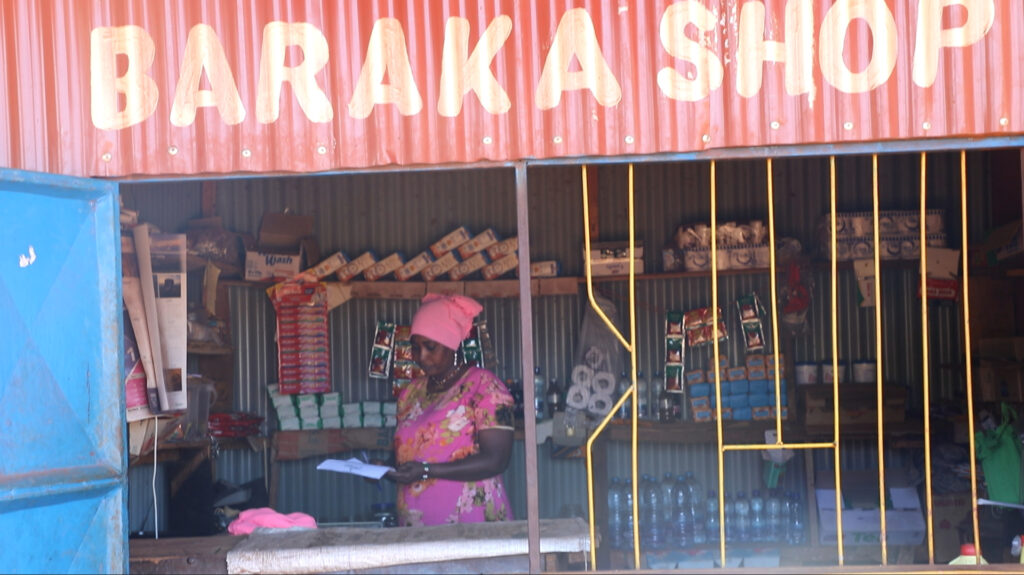
This loan came at a crucial juncture, as a prolonged drought devastated the region, leading to a dire shortage of rainfall, which greatly affected the livelihoods of the indigenous people in northern Kenya. Before the SACCO’s intervention, Tunu, like many others in her community, had grappled with a sense of hopelessness. However, she used the loan wisely, allocating funds towards her children’s school fees, investing in her business, and securing a portion for savings.
Tunu expresses her gratitude, “Being a member of the Sacco has helped me a lot despite having come from a drought season whereby I experienced highs and lows. I have used the money to stock my shop with household commodities, foods, and cereals. I look forward to receiving more loans to expand my business.”
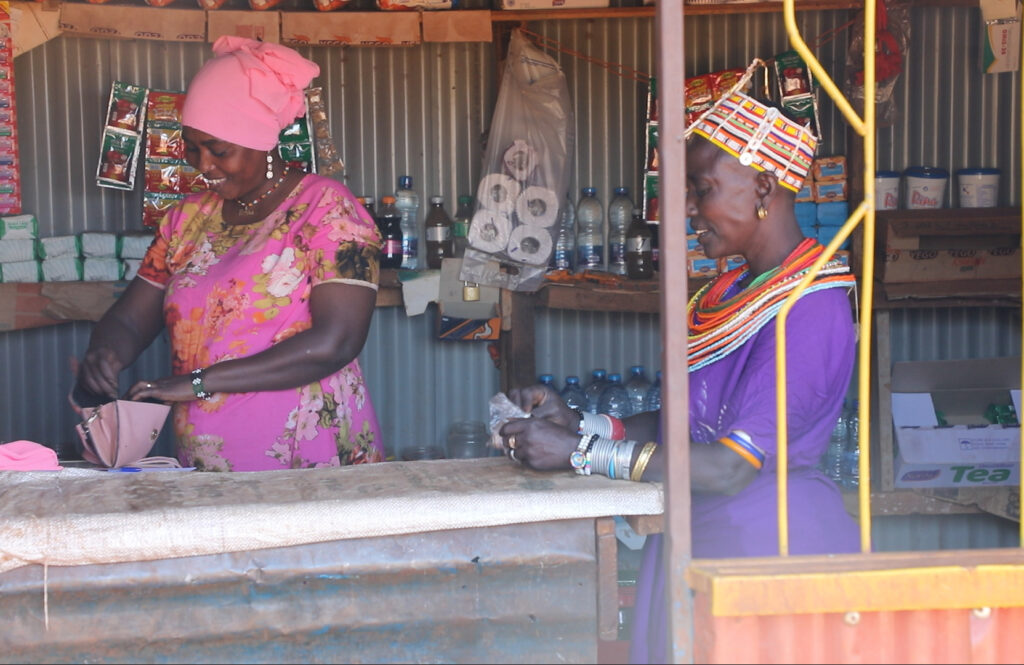
Today, Tunu runs her shop with a positive outlook, aiming to achieve daily profitability. On her best days, she garners up to 3,000 shillings; on others, she still manages to earn at least 500 on a bad day.
She acknowledges NRT Trading for nurturing her entrepreneurial skills and fostering her financial growth, enabling her to run a thriving business that sustains her family and contributes to the betterment of her community.


